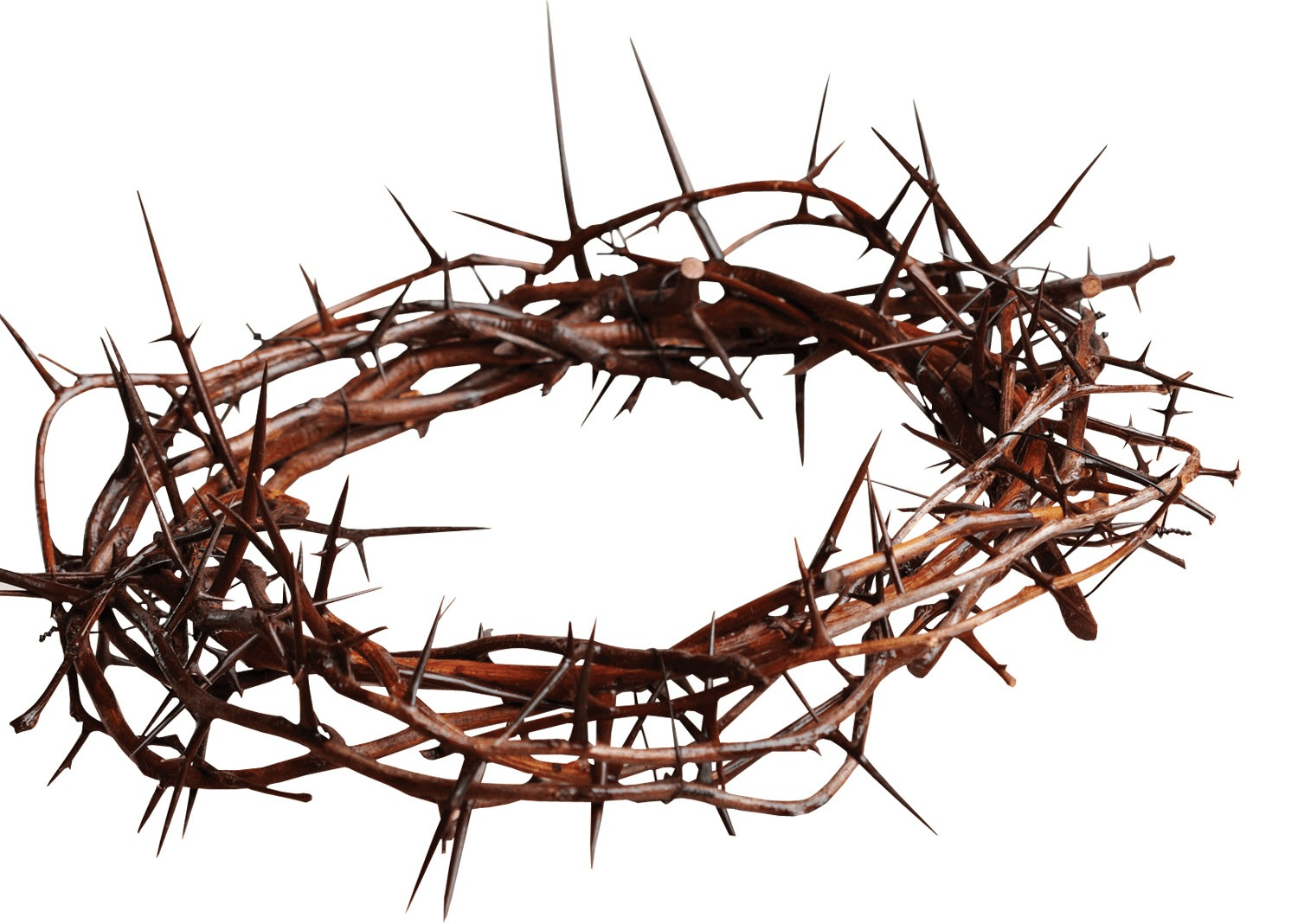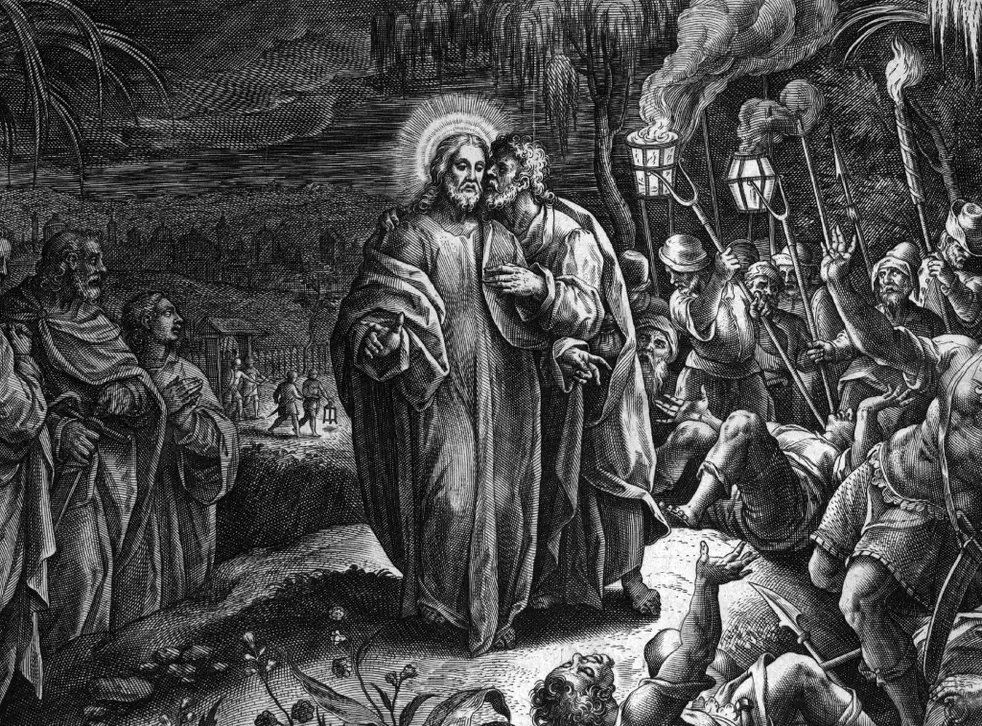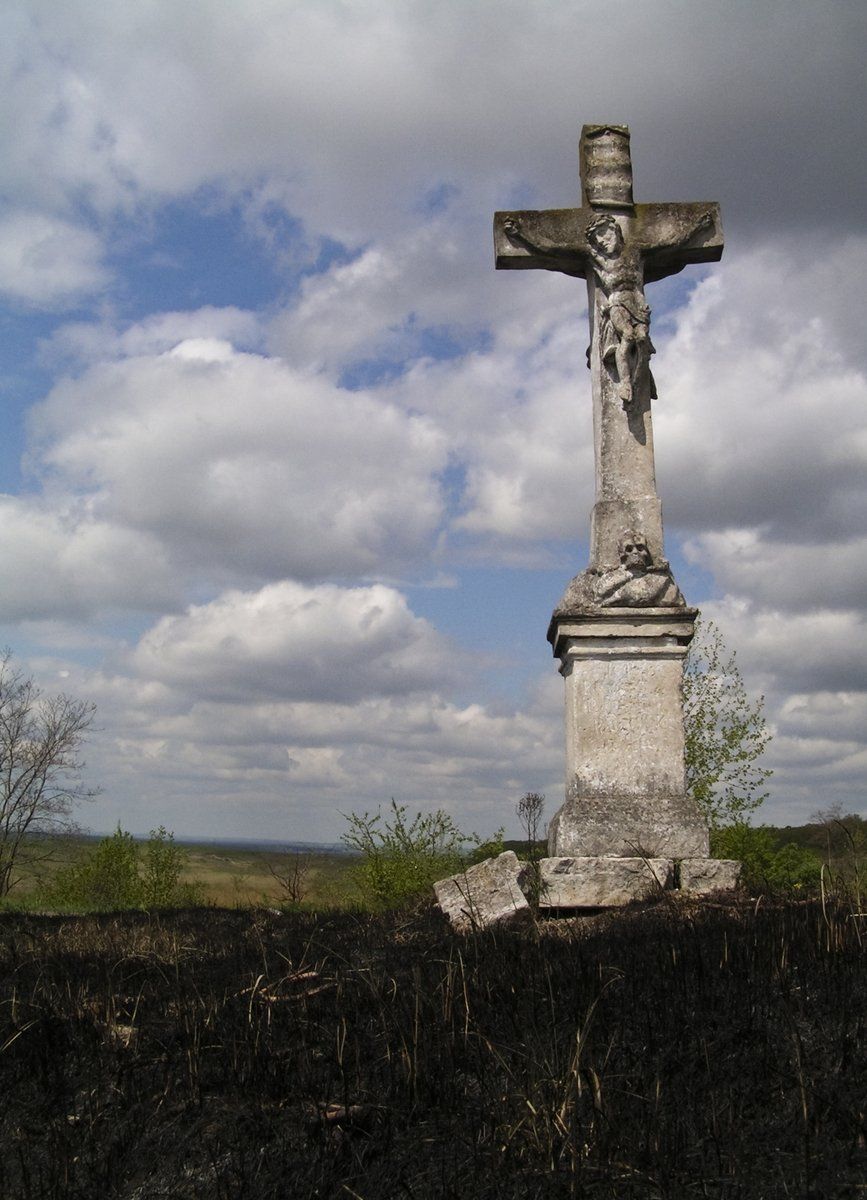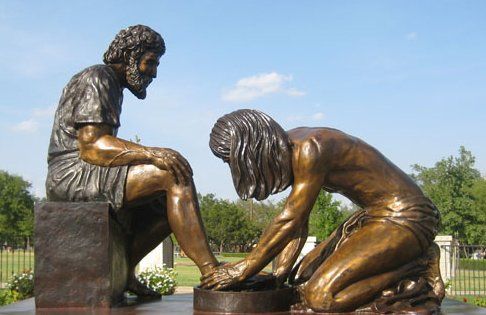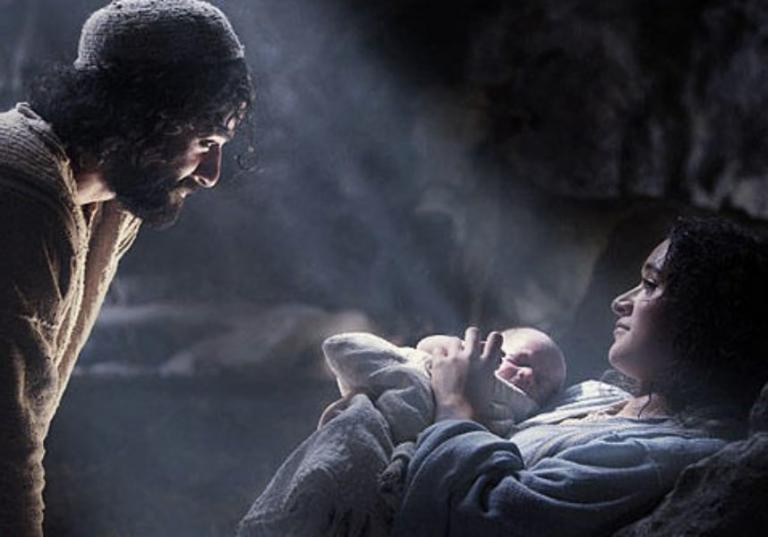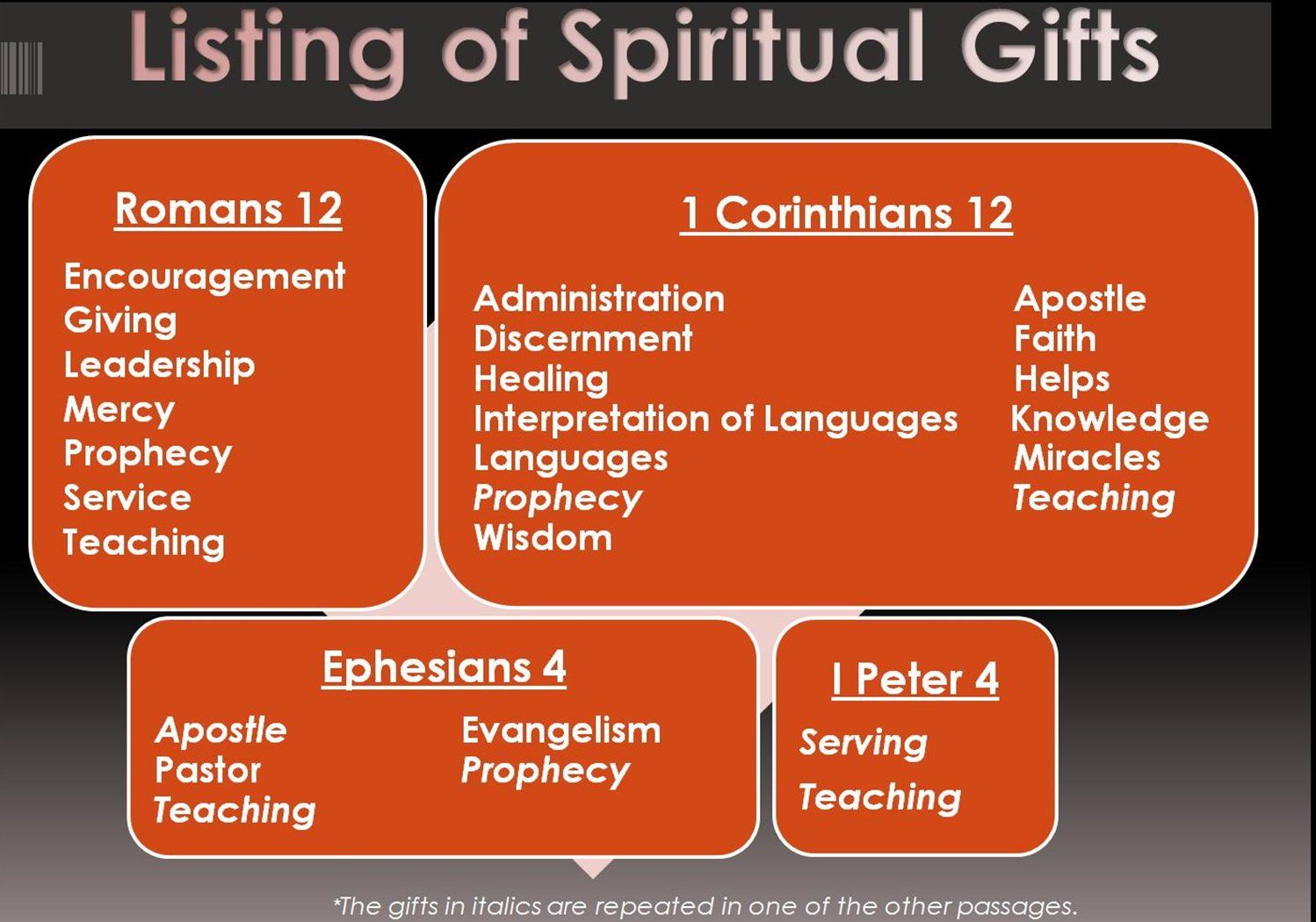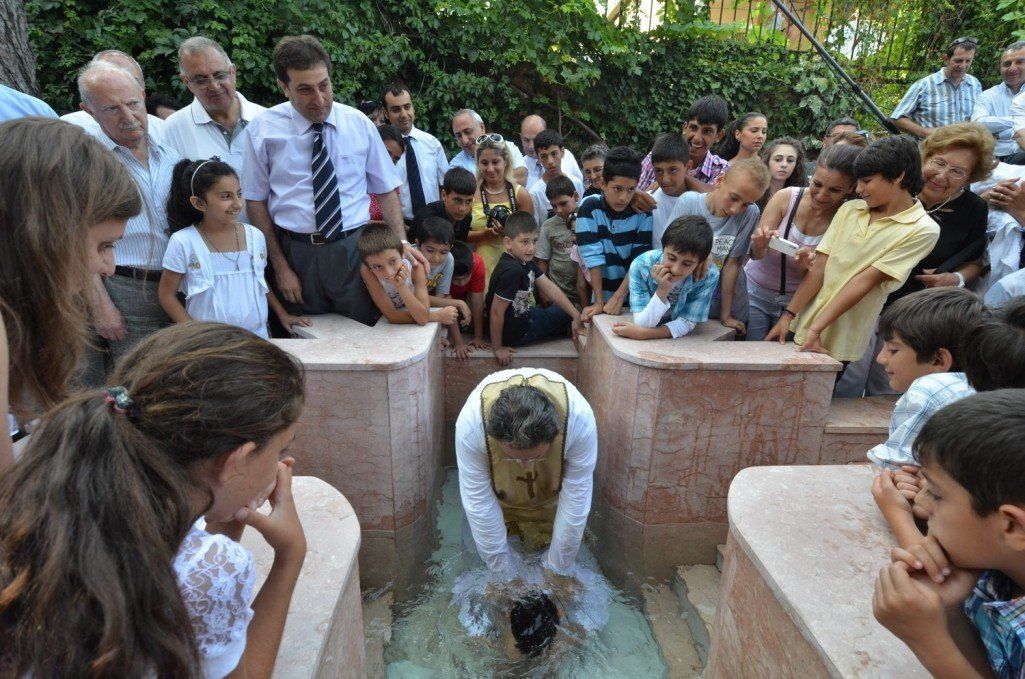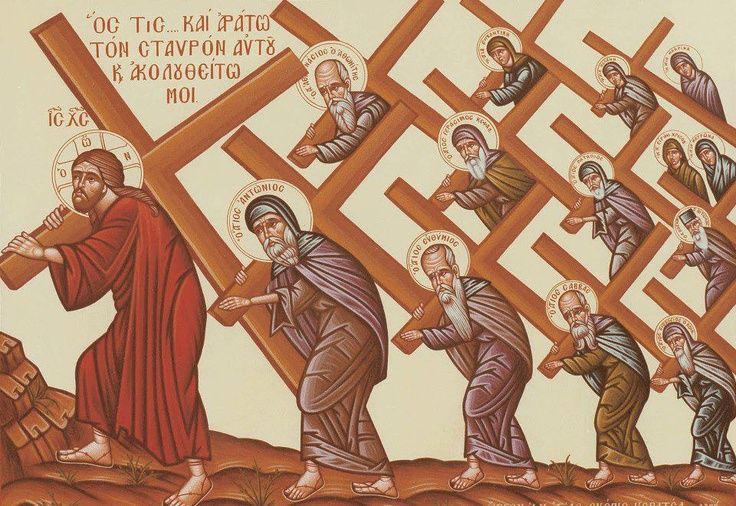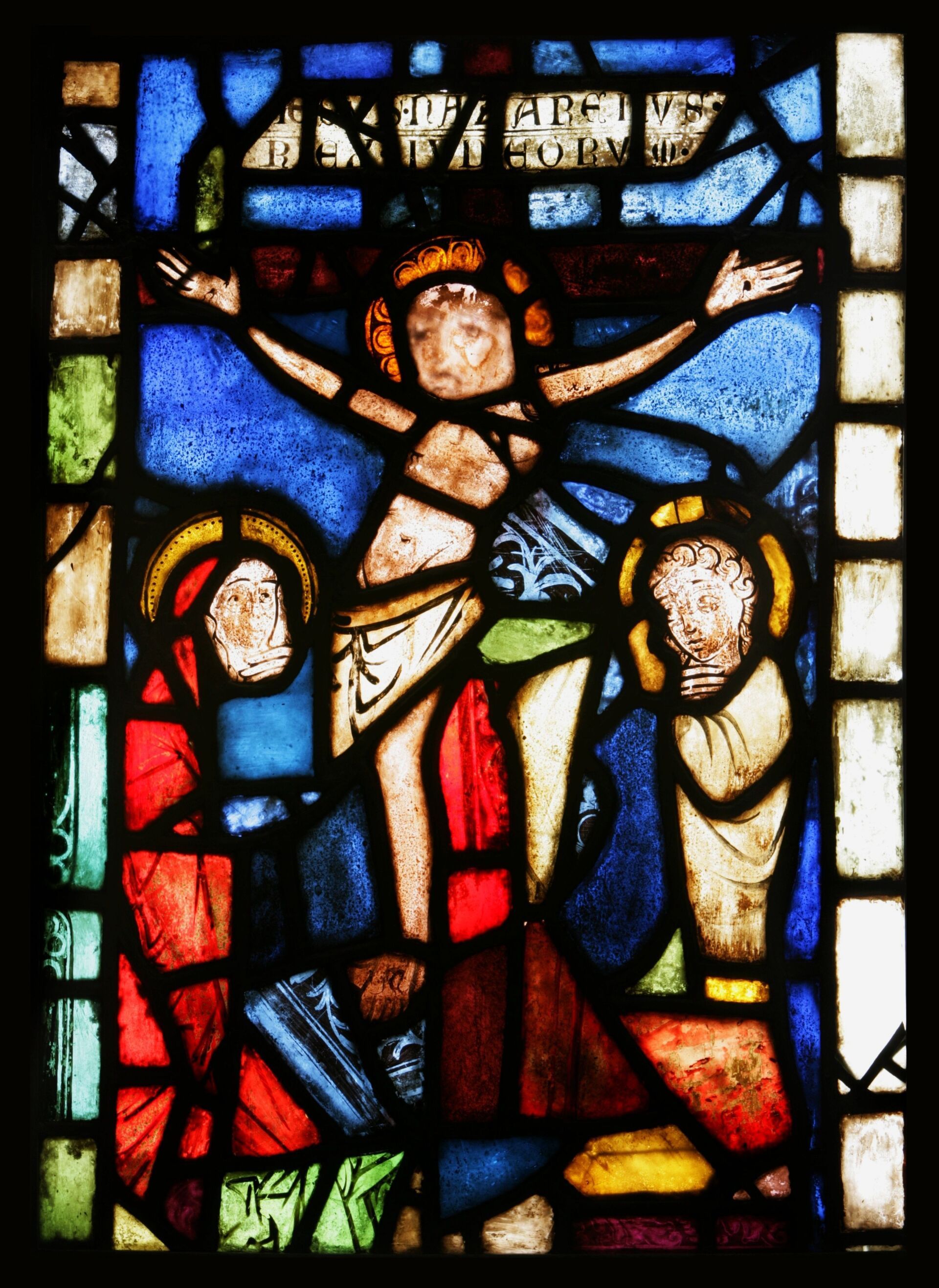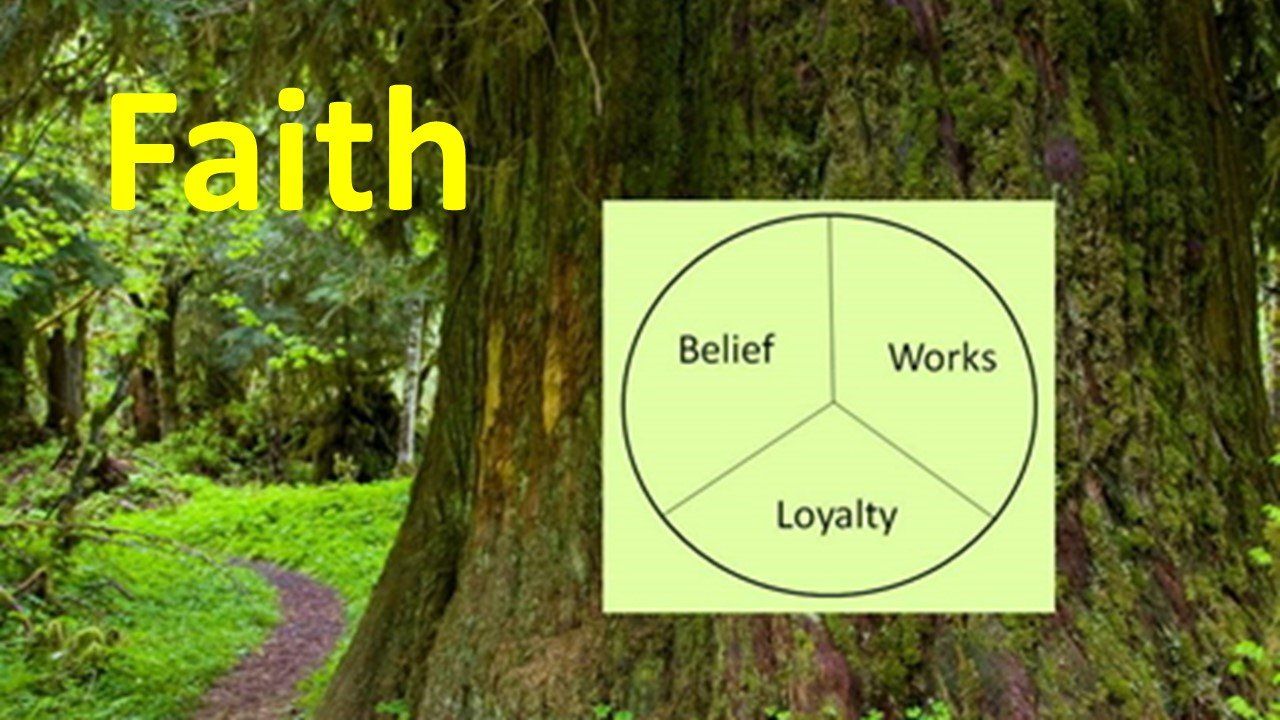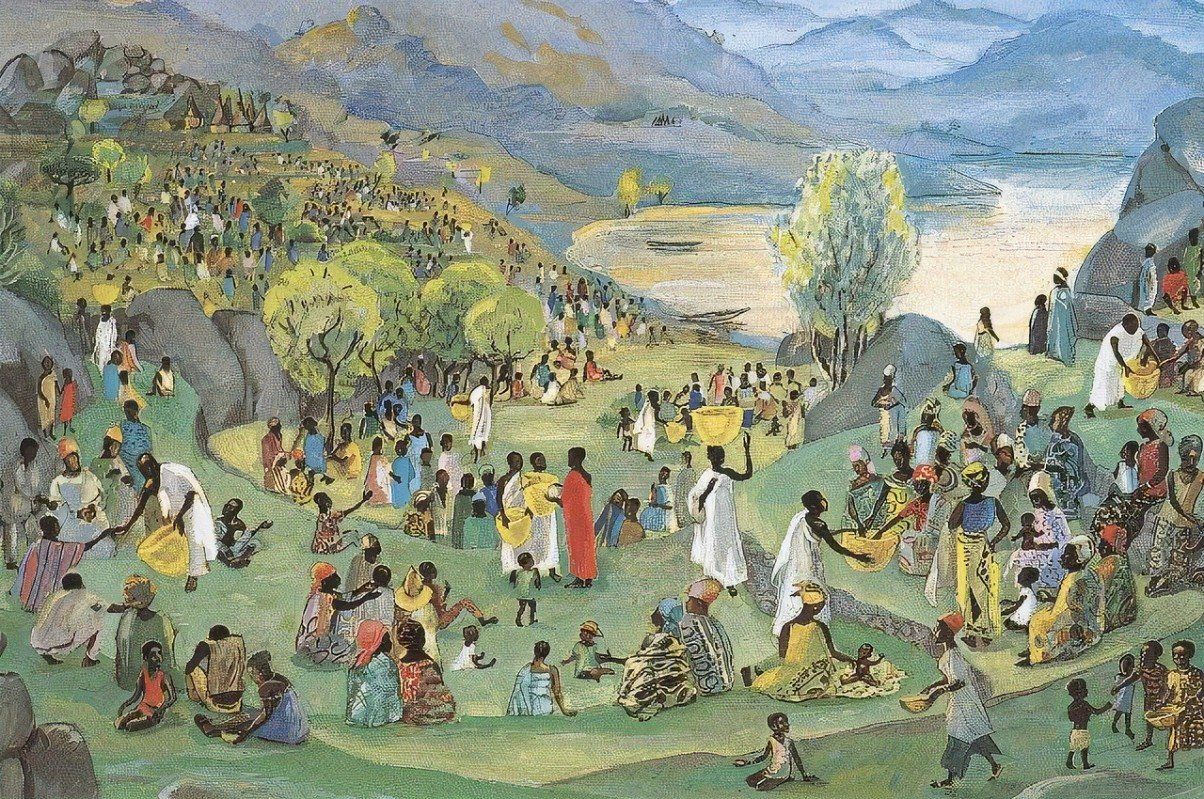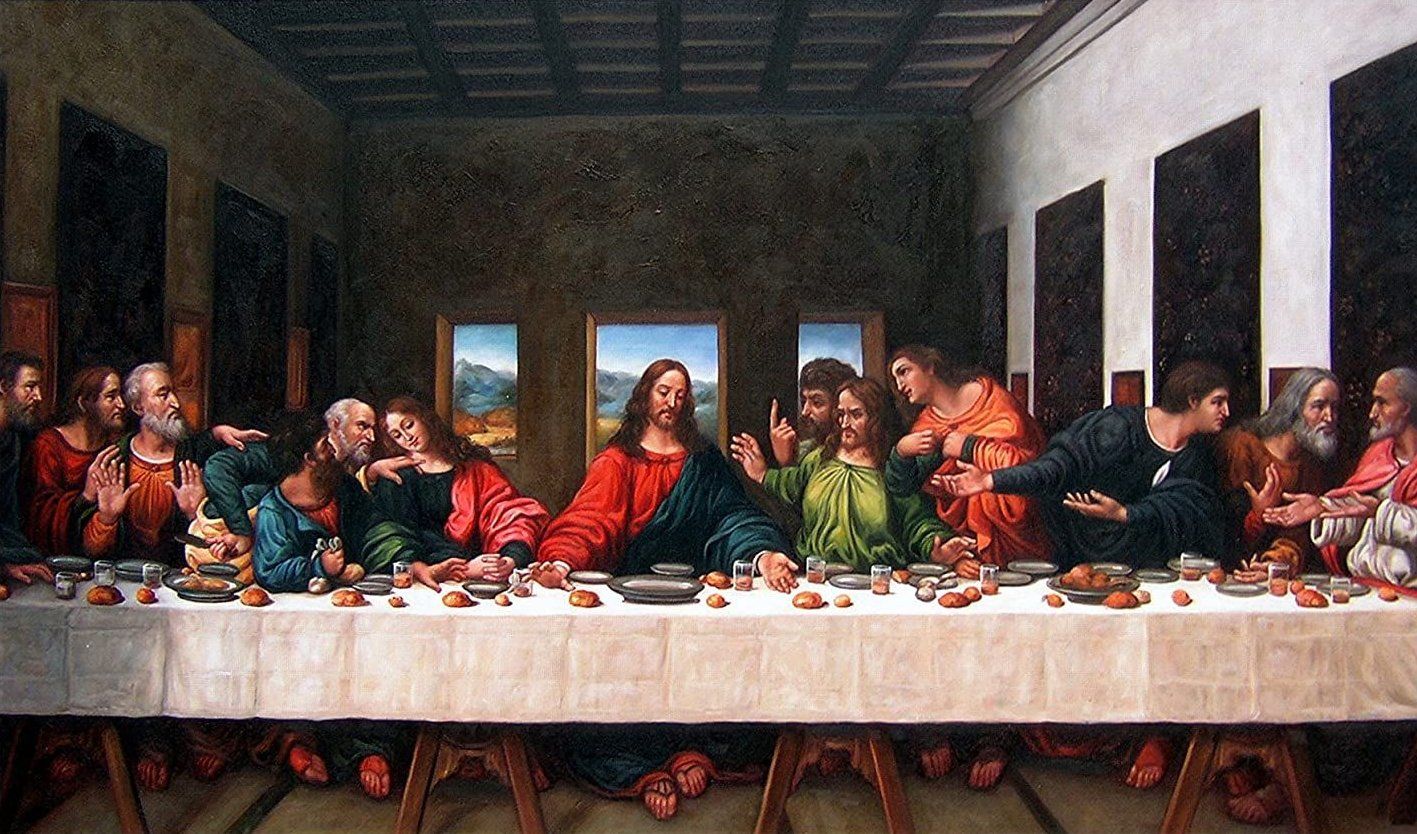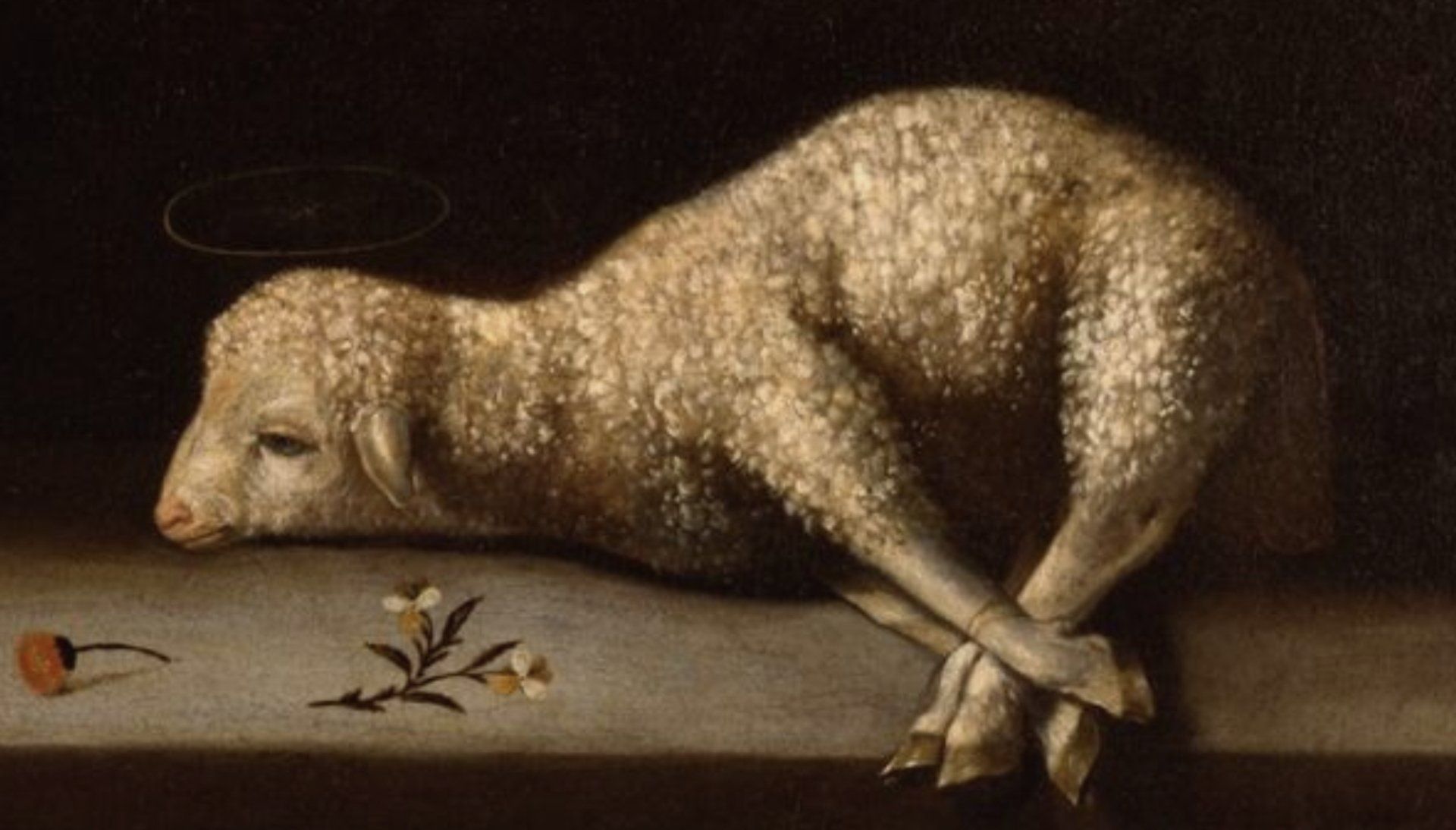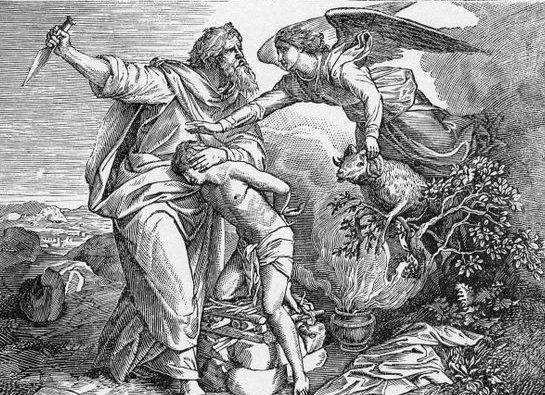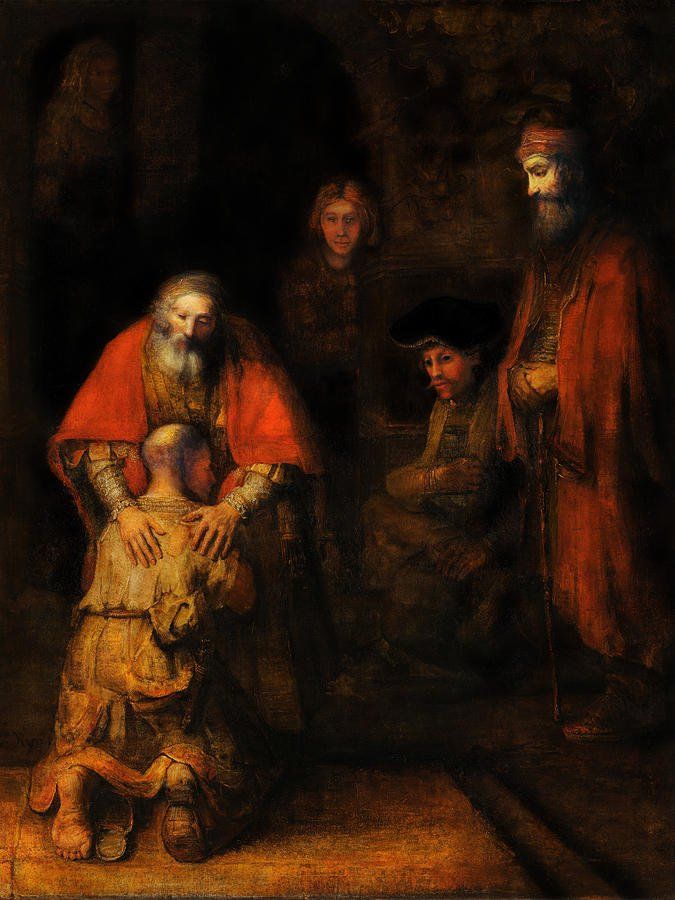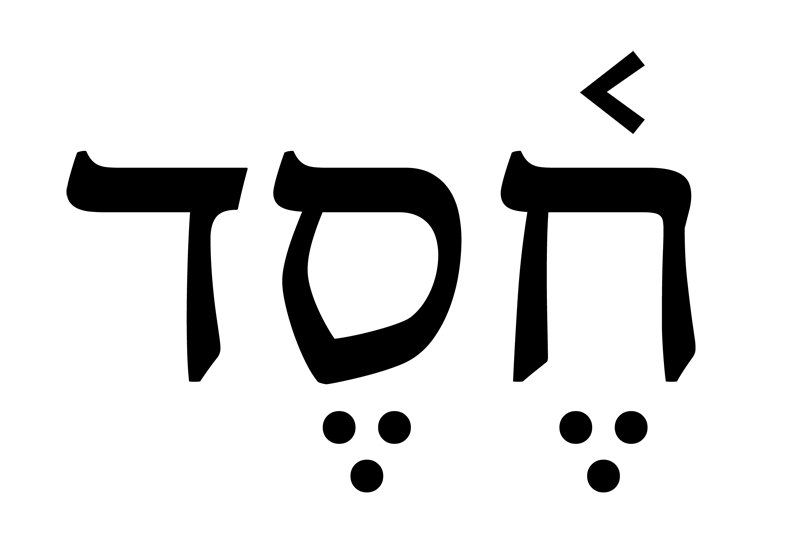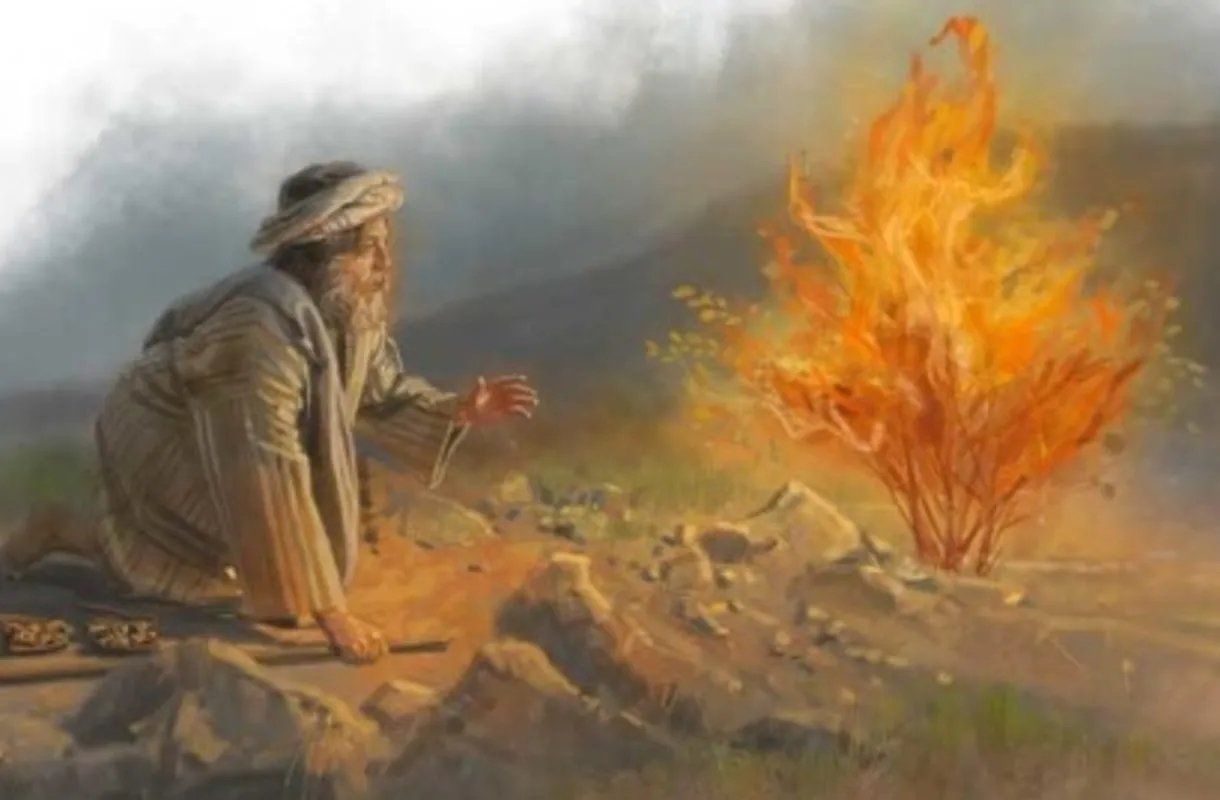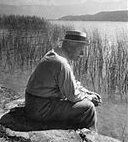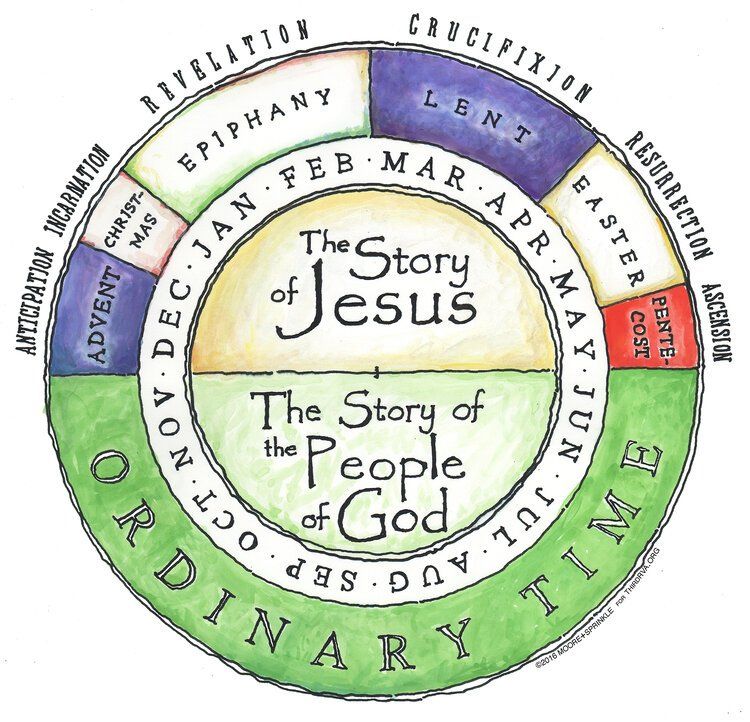Thursday, April 14, 2022 – The King on Trial
The following is a synoptic account of Jesus trial and execution. It is the combination of the four gospel accounts. If one of the gospels included it, it is included here. If two or more of the gospels included the same passage, the fullest passage was included here, and the others omitted. This reading is longer than other posts, so, if you like, you can spread it out over the Easter weekend. This is the last Lenten blog post for this year. The reading begins with Jesus’ arrest in the garden.
“Am I some dangerous revolutionary”, Jesus asked, “that you come here with swords and clubs to arrest me? Why didn’t you arrest me in the Temple? I was there among you teaching every day. But these things are happening to fulfill what the Scriptures say about me.”
Then all his disciples deserted him and ran away.
They took Jesus to the high priest’s home where the leading priests, the elders, and the teachers of religious law had gathered. Meanwhile, Peter followed him at a distance and went right into the high priest’s courtyard. There he sat with the guards, warming himself by the fire.
Inside, the leading priests and the entire high council were trying to find evidence against Jesus, so they could put him to death. But they couldn’t find any. Many false witnesses spoke against him, but they all contradicted each other. Finally, some men stood up and gave this false testimony: “We heard him say, ‘I will destroy this Temple made with human hands, and in three days I will build another, made without human hands.’” But even then, they didn’t get their stories straight!
Then the high priest stood up before the others and asked Jesus, “Well, aren’t you going to answer these charges? What do you have to say for yourself?” But Jesus was silent and made no reply.
Then the high priest asked him, “Are you the Messiah, the Son of the Blessed One?” Jesus said, “I AM. …In fact, you will see the Son of Man seated in the place of power at God’s right hand and coming on the clouds of heaven.”
At this, the high priest tore his clothing to show his horror and said, “Why do we need other witnesses? You have all heard his blasphemy. What is your verdict?” “Guilty!” they all cried. “He deserves to die!”
Then some of them began to spit at him, and they blindfolded him and beat him with their fists.
“Prophesy to us,” they jeered. And the guards slapped him as they took him away.
Meanwhile, Peter was in the courtyard below. One of the servant girls who worked for the high priest came by and noticed Peter warming himself at the fire. She looked at him closely and said, “You were one of those with Jesus.” But Peter denied it. “I don’t know what you’re talking about,” he said, and he went out into the entryway. Just then, a rooster crowed.
When the servant girl saw him standing there, she began telling the others, “That man is definitely one of them!” But Peter denied it again. A little later some of the other bystanders confronted Peter and said, “You must be one of them, because you are a Galilean.”
Peter swore, “A curse on me if I’m lying - I don’t know this man you’re talking about!” And immediately the rooster crowed the second time. Suddenly, Jesus’ words flashed through Peter’s mind: “Before the rooster crows twice, you will deny three times that you even know me.” And he broke down, went out, and wept bitterly.
Jesus’ trial before Caiaphas ended in the early hours of the morning. Then he was taken to the headquarters of the Roman governor. His accusers didn’t go inside because it would defile them, and they wouldn’t be allowed to celebrate the Passover. So, Pilate, the governor, went out to them and asked,
“What is your charge against this man?” “We wouldn’t have handed him over to you if he weren’t a criminal!” they retorted. “Then take him away and judge him by your own law,” Pilate told them. “Only the Romans are permitted to execute someone,” the Jewish leaders replied.
Then Pilate went back into his headquarters and called for Jesus to be brought to him. “Are you the king of the Jews?” he asked him. Jesus replied, “Is this your own question, or did others tell you about me?” “Am I a Jew?” Pilate retorted. “Your own people and their leading priests brought you to me for trial. Why? What have you done?”
Jesus answered, “My Kingdom is not an earthly kingdom. If it were, my followers would fight to keep me from being handed over to the Jewish leaders. But my Kingdom is not of this world.” “So you are a king?”, Pilate said. “You say I am a king”, Jesus responded. “Actually, I was born and came into the world to testify to the truth. And all who love the truth, recognize that what I say is true.”
“What is truth?” Pilate asked. Then he went out again to the people and told them, “This man is not guilty of any crime. Then they became insistent. “But he is causing riots by his teaching wherever he goes—all over Judea, from Galilee to Jerusalem!” “Oh, he’s a Galilean, is he?” Pilate asked. When they said that he was, Pilate, sent him to Herod, because Galilee was under Herod’s jurisdiction and Herod happened to be in Jerusalem at the time.
Herod was delighted at the opportunity to see Jesus. He had heard about him and had been hoping for a long time to see him perform a miracle. He asked Jesus question after question, but Jesus refused to answer. Meanwhile, the leading priests and the teachers of religious law stood there shouting their accusations. Then Herod and his soldiers began mocking and ridiculing Jesus. Finally, they put a royal robe on him and sent him back to Pilate.
Then Pilate called together the leading priests and other religious leaders, along with the people, and he announced his verdict. “You brought this man to me, accusing him of leading a revolt. I have examined him thoroughly on this point in your presence …and find him innocent. Herod came to the same conclusion and sent him back to us. Nothing this man has done calls for the death penalty. So I will have him flogged, and then I will release him.”
Then a mighty roar rose from the crowd, and with one voice they shouted, “Kill him, and release Barabbas to us! (Barabbas was in prison for murder.) Pilate argued with them, because he wanted to release Jesus. But they kept shouting, “Crucify him! Crucify him!”
For the third time he demanded, “Why? What crime has he committed? I have found no reason to sentence him to death. So, I will have him flogged, and then I will release him.” But the mob shouted louder and louder, demanding that Jesus be crucified, …and their voices prevailed.
So, Pilate sentenced Jesus to die as they demanded. As they had requested, he released Barabbas, the man in prison for murder. Then Pilate had Jesus flogged with a lead-tipped whip. The soldiers wove a crown of thorns and put it on his head, and they put a royal robe on him. “Hail! King of the Jews!” they mocked, as they slapped him across the face.
Pilate went outside again and said to the people, “I am going to bring him out to you now but understand clearly that I find him not guilty.” Then Jesus came out wearing the crown of thorns. And Pilate announced, “Behold, here is the man!”
When they saw him, the leading priests and Temple guards began shouting, “Crucify him! Crucify him!” “Take him yourselves and crucify him,” Pilate said. “I find him not guilty.”
The Jewish leaders replied, “By our law he ought to die because he called himself the Son of God.” When Pilate heard this, he was more frightened than ever.
He took Jesus back into the headquarters again and asked him, “Where are you from?” But Jesus gave no answer. “Why don’t you talk to me?” Pilate demanded. “Don’t you realize that I have the power to release you or crucify you?” Then Jesus said, “You would have no power over me at all unless it were given to you from above. So the one who handed me over to you has the greater sin.”
Then Pilate tried to release him, but the Jewish leaders shouted, “If you release this man, you are no ‘friend of Caesar.’ Anyone who declares himself a king is a rebel against Caesar.” When they said this, Pilate brought Jesus out to them again.
Then Pilate sat down on the judgment seat on the platform that is called the Stone Pavement. And Pilate said to the people, “Look, here is your king!” “Away with him,” they yelled. “Away with him! Crucify him!” “Crucify your king?” Pilate asked. “We have no king but Caesar,” the leading priests shouted back. Then Pilate turned Jesus over to them to be crucified.
So they took Jesus away. Carrying the cross, soldiers escorted Him to the place called the Place of the Skull (in Hebrew, Golgotha). Along the way, they came across a man named Simon, who was from Cyrene, and the soldiers forced him to carry Jesus’ cross. And they went out to Golgotha and they crucified Him there.
The soldiers gave him wine mixed with bitter gall, (to dull the pain) but when he had tasted it, he refused to drink it. A sign was fastened to the cross above Jesus’ head, announcing the charge against him. It read: “This is Jesus, the King of the Jews.”
Two revolutionaries were crucified with him, one on his right and one on his left. The people passing by shouted abuse, shaking their heads in mockery. “Look at you now!” they yelled at him. “You said you were going to destroy the Temple and rebuild it in three days. Well then, if you are the Son of God, save yourself and come down from the cross!”
The leading priests, the teachers of religious law, and the elders also mocked Jesus. “He saved others,” they scoffed, “but he can’t save himself! So, he is the King of Israel, is he? Let him come down from the cross right now, and we will believe in him! He trusted God, so let God rescue him now… if he wants him! For he said, ‘I am the Son of God.’”
Even the revolutionaries who were crucified with him ridiculed him in the same way. But Jesus prayed… “Father, forgive them, they have no idea what they are doing”. One of the criminals hanging beside him scoffed, “So you’re the Messiah, are you? Prove it by saving yourself—and us, too, while you’re at it!” But the other criminal protested, “Don’t you fear God, man… even when you have been sentenced to die? We deserve to die for our crimes, but this man hasn’t done anything wrong.” Then that criminal said to Jesus, “…remember me when you come into your Kingdom.” And Jesus said to him, “Truly, I say to you, today you will be with me in paradise.”
When the soldiers had crucified Jesus, they divided his clothes among the four of them. They also took his robe… but it was seamless, woven in one piece from top to bottom. So they said, “Rather than tearing it apart, let’s throw dice for it.” This fulfilled the Scripture that says, “They divided my garments among themselves and threw dice for my clothing.” So that is what they did.
Standing near the cross were: Jesus’ mother, his aunt, Mary (the wife of Clopas), and Mary Magdalene. When Jesus saw his mother standing there beside the disciple he loved, he said to her, “Woman, behold your son.” And he said to this disciple, “behold your mother.” And from then on this disciple took her into his home.
At noon, darkness fell across the whole land until three o’clock. Then at three o’clock Jesus called out with a loud voice, “Eloi, Eloi, lema sabachthani?” (Sa-back-than-i), which means “My God, my God, why have you abandoned me?”
Now, Jesus knew that his mission was finished, and to fulfill Scripture he said, “I thirst.” A jar of sour wine was sitting there, so they soaked a sponge in it, put it on a hyssop branch, and held it up to his lips.
The present darkness had been across the whole land until three o’clock. The light from the sun was gone. Suddenly, the curtain in the sanctuary of the Temple was torn right down the middle. Then Jesus shouted, “Father, into your hands I commit my spirit!”
When Jesus had tasted the sour wine and said His final prayer, he said, “It is finished!” Then he bowed his head and released his spirit.
When Jesus died the earth shook, rocks split apart, and tombs opened. The bodies of many godly men and women who had died were raised from the dead.
The Roman officer and the other soldiers at the crucifixion were terrified by the earthquake and all that had happened. They said, “Surely this was the Son of God!”
